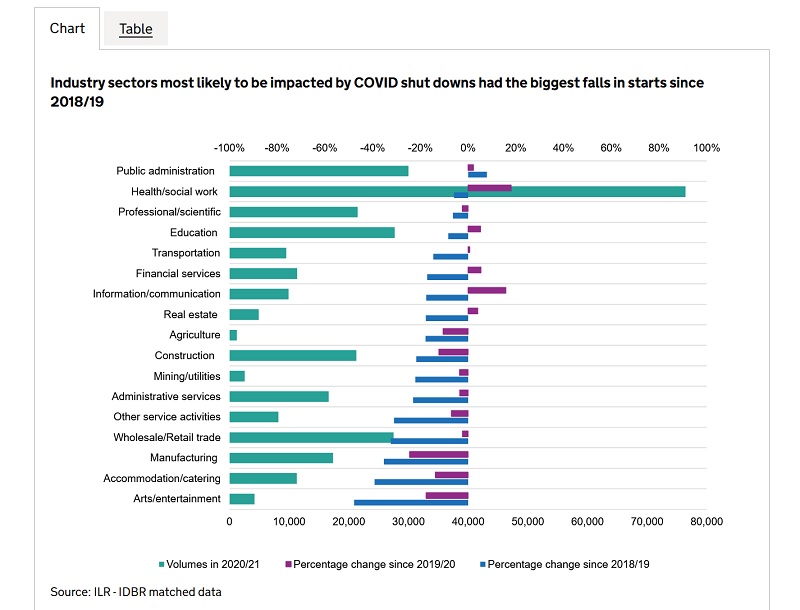Over the past few years, the UK has identified a vast increase in people facing Mental Health issues, and the education sector is continually identifying this as an issue for students.
Over time, this worsening situation has become more prominent for both the government and awarding bodies in its potential seriousness. The sector has reacted well and provided a range of remedial support solutions in the form of college counsellors and wellbeing support staff. However, these are now facing capacity challenges and, in some cases, leaving these staff to deal with more serious situations that they may not be qualified to deal with.
Given the overwhelming demand and the restricted public service solutions such as CAMHS qualified professional support is extremely limited. Students in particular riddled with anxiety and pressure find alternative pathways that aren’t healthy or positive, often leading to avoidance of life and addictive and harmful behaviours and substances.
We also understand the demand on teachers’ time, to deliver curriculum-related teaching, and we understand that they get involved in, life skills, that often don’t fit into a student’s timetable, or that a college doesn’t have staff to teach.
Let us provide you with additional resources
IPS Ltd can provide a range of opportunities to enhance the resources you already have. Together, we can help students and get them on the right pathway, and even reach out to the students that will not want to admit that they need help, especially in front of their peers.
“Established for over 13 years, IPS Ltd has provided a range of systems and resources to enable the FE sector to have both integrated and automated technology, that supports Safeguarding policies and procedures, and additionally to minimise the workloads of college staff.
We have worked heavily with systems, facilitating access to college services by increasing accessibility and efficiency to the students. We have delivered contactless ID cards, making safeguarding and access safer and more reliable. Our bursary management and cashless systems reduce cash handling. We have already developed self-service kiosks, that use facial recognition, so staff and students can reset passwords or print replacement cards. We can create and delete user accounts as an automatic process for door systems, computer systems, payment systems and our register management system. We integrate into your MIS system, meaning that this becomes the heart of your technology, and no additional input is required.
Our passion for teaching and learning is always at the forefront of what we do, and our regular conversations with our customers ensure that our systems benefit from their feedback.
However, our conversations have always reverted to the issues you are facing around students’ mental health, and as I mentioned, our passion for education of course resulted in us wanting to help fill the gap and increase the resources that are available for you.
With the wealth of contacts and partnerships IPS Ltd has, it was only obvious to bring them together, which has now resulted in us branching out as a company further and helping you extend your Student Experience Resources, and depending on your requirements, we can help you to Prevent, Educate, Support and Dream.” Robert Powell, Managing Director, IPS Ltd.
As we all know, all Colleges’ geographics and demographics are different, and we have considered this. Therefore, we have created a number of packages to provide you with a selection of choices, giving you the extensive resources that you may need.
Prevent Package
Our prevent package is a highly intelligent system that integrates to your access control and provides alert notifications to staff when students scan their ID Cards regularly at unusual intervals, this highlights through AI unusual behavioural patterns which have been found in some colleges to indicate drug dealing.
Furthermore, we have tools to discourage students from passing cards to unauthorised people to enter the buildings.
The purpose of the prevent package is to provide staff with the intelligence they need so that they can investigate any alerts further, and action situations as they need to.
As an education provider, the last resort for you would be to exclude or withdraw a student, however, if students are resulting in alternative pathways for Mental Health, then it is likely that this may be considered. We can provide you with another option, our Educate package.
Educate Package
Our ever-growing Educate platform provides a series of webinars that you and your students can activate at any time of day or night.
Many problems of living today are attributed to mental health, and often they cause anxiety and stress that can be overcome with the right tools.
Such as managing your money and budgeting, a webinar that we put together that has mathematics at its heart.
This package is suitable for all students, and we aim to provide them with information that could help them understand and deal with life better, from mental health issues or even just day-to-day stresses including exams. Therefore, we have our healthy mind healthy body series including webinars on the benefit of Meditation and Mindfulness, and why Diet & Exercise work best together.
We have also included webinars that are focused on a range of addictions, including gambling, alcohol, drugs and gaming. These webinars have guest speakers who have faced these addictions, and your students will have the chance to hear about the experiences and situations that they faced. They will also learn how our guest speakers went into recovery and gain knowledge of where to go if they need help.
Support Package
Additional to the Educate platform, our Support package provides a range of functionalities, from face-to-face discussions either through an online portal, or a campus visit. Our guest speakers can join groups of students and discuss with them a range of topics, providing solutions that can help the students to move onto the right pathway.
As an example, we are inviting Tom May a rugby superstar into a college to share information about his mental breakdown and what it did to him, along with a former student, who will be sharing their story of when they were studying carpentry at a college and would do anything to fit in.
Extending this package further, IPS Ltd is in partnership with Mindspace 24/7, a company that provides access to private and confidential online qualified therapists, who have a range of specialisms. They are available 24 hours a day, 7 days a week even out of college term time and can also be an additional aid for your current Counsellors and Wellbeing Coaches, who can refer students that they see this as a benefit for.
Quite simply your college has a bank of credits that student support can issue so that the student can talk to a qualified professional instantly and plan a longer-term support package if needed.
Dream Package
Our Dream package extends the reach of advice and guidance to students, that need to understand the careers that they could achieve once they have completed their courses. This package can provide them with a range of information to ensure that they are on the right journey for their dream careers and help them to meet their full potential.
This platform provides a range of webinars with top professionals as guest speakers, to give a range of information to students. They provide knowledge on how they started their career, the pathways that they took and where they currently are within their working life, providing a wealth of information to students and giving them alternative avenues to consider.
Find out More
We are delighted to provide you and your colleagues with the opportunity to join us at our FREE Student Experience Resources Webinar, on Wednesday 11th May ’22 from 10.30am – 11.30am.

During the webinar, you will have the opportunity to listen to some of our guest speakers, who will be providing information on alternative methods of therapy, to help issues around Mental Health, including laughter and meditation.
We will be providing you with further information on the Enrichment Resource Solution packages. To enable you to visualise how they would work within your college, and you will also have the opportunity to ask any questions to our panel.
For more information and to register for our webinar please click HERE



